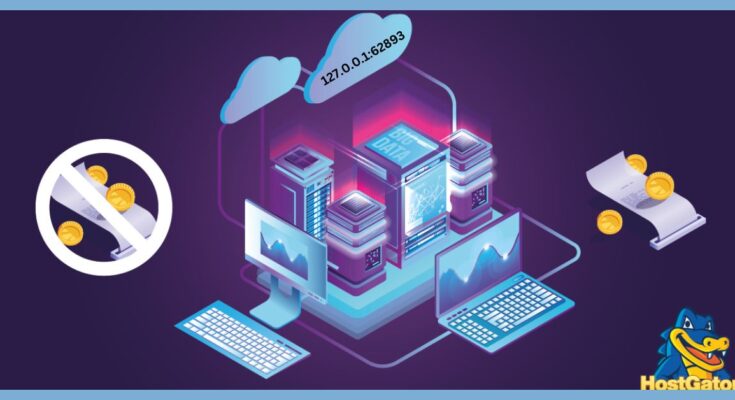Introduction to 127.0.0.1:62893
You ever wondered what 127.0.0.1:62893 means and why it matters? This guide will walk you through the basics of localhost and ports, mainly focusing on 127.0.0.1:62893. Whether yoyou’re newbie or an experienced developer, understanding these concepts is crucial for efficient networking and development.
Overview of 127.0.0.1:62893
Understanding IP Addresses and Ports
IP addresses are unique identifiers for devices on a network. 127.0.0.1:62893 is the localhost, a special-purpose address used for testing and development on your machine. Ports like 62893, are endpoints for network connections. Each port number allows different services to run simultaneously on the same IP address without interference.
Specifics of Port 62893
Port 62893 is just one of many available ports for communication between applications. Its specific use can vary depending on the configuration and services running on your local host.
The Role of Localhost in Development
Testing and Development Environment
Localhost is indispensable for developers. It allows you to test applications in a controlled environment without affecting the live server. This isolation ensures that errors or issues can be resolved without impacting end users.
Common Uses for Localhost
From running a local web server to hosting a database, localhost serves multiple purposes in development. It’s sandbox where you can safely build, test, and refine your projects.
How Localhost 127.0.0.1:62893 Works
Loopback Interface Explained
The loopback interface, represented by 127.0.0.1:62893, is a network interface that returns traffic to the same machine. This process enables software on your computer to communicate with itself, which is useful for development and testing.
Benefits of Using Localhost
Using localhost minimizes external dependencies and network latencies, providing a faster and more reliable environment for testing and development.
Setting Up Localhost
Installing Necessary Software
To set up a local host environment, you’ll use software like XAMPP, WAMP, or MAMP. These packages include necessary components like Apache, MySQL, and PHP.
Configuring Your System
After installation, configure your system by editing configuration files (httpd. conf, my.ini) to customize your local host environment according to your needs.
Working with Ports
What Are Ports?
Ports are virtual docks where network connections start and end. They ensure that data packets reach the suitable applications.
Why Use Different Ports?
Different ports allow multiple services to run on the same IP address without conflicts. For instance, you can run a web server on port 80 and a database server on port 3306 simultaneously.
Security Considerations for Localhost
Protecting Your Development Environment
Even though localhost is not exposed to the internet, it is crucial to follow security best practices to prevent unauthorized access and data breaches.
Common Security Practices
Use strong passwords, update software regularly, and limit access to your local host environment. Implement firewalls and antivirus software to add an extra layer of protection.
Common Issues and Troubleshooting
Typical Problems with Localhost
Common issues include port conflicts, firewall restrictions, and software misconfigurations.
Solutions and Fixes
Resolve port conflicts by changing the port number in the configuration files. Adjust firewall settings to allow traffic through the necessary ports. Double-check your software configurations to ensure everything is set up correctly.
Advanced Configurations
Customizing Your Localhost Setup
Advanced users can customize their local host setup with virtual hosts, allowing multiple sites to be hosted locally. This is particularly useful for testing sites with different domain names.
Using Virtual Hosts
Set up virtual hosts by editing the httpd-vhosts.conf file and adding entries to your system file. This setup allows you to access local sites with custom URLs like http://mysite.local.
Testing Web Applications on Localhost
Benefits of Local Testing
Testing locally speeds up the development process and provides a safe environment to experiment and debug.
Tools and Techniques
Use tools like Postman for API testing and brbrowsers’eveloper tools to inspect and debug your applications. Automated testing frameworks like Selenium can also be beneficial.
Localhost vs. Remote Server
Key Differences
Localhost is used for development and testing, while remote servers host live applications that are accessible to users. Localhost is isolated and private, whereas remote servers are public and can be accessed online.
When to Use Each
Use localhost for initial development, testing, and debugging. Once your application is stable and ready for deployment, move it to a remote server.
Practical Examples
Setting Up a Simple Web Server
Install a package like XAMPP, start the Apache server, and place your web files in the htdocs directory. Access your site via http://127.0.0.1:80.
Running a Database Locally
Use software like MySQL or PostgreSQL. Configure the database server and connect to it using a client application or command line. Access your database at http://127.0.0.1:3306.
Frequently Asked Questions (FAQs)
Common Inquiries Answered
- What is the purpose of 127.0.0.1:62893?
- 127.0.0.1:62893 is the loopback address used for testing and development on your local machine.
- How do I change the port number on localhost?
- Edit the configuration file of your server software (e.g., httpd. conf for Apache) and change the port number.
- Why is localhost important for developers?
- Localhost provides a safe and controlled environment for developing and testing applications without affecting live servers.
- What are some common issues with localhost?
- Common issues include port conflicts, firewall restrictions, and software misconfigurations.
- How can I secure my local environment?
- Use strong passwords, update software regularly, and implement firewalls and antivirus software.
Conclusion
In conclusion, understanding 127.0.0.1:62893 is essential for anyone involved in web development or networking. Localhost serves as a crucial tool for testing and development, providing a safe and efficient environment to build and refine your projects. By mastering the use of IP addresses and ports, you can enhance your development process and ensure the security and reliability of your applications.





